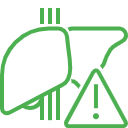PTSD and Addiction Treatment at Crestone
Post-Traumatic Stress Disorder (PTSD) and addiction often occur together, which can be incredibly challenging for those who experience them.[1] Those with PTSD may turn to substance abuse as a means of coping with the distressing symptoms of trauma, such as intrusive memories, hypervigilance, and emotional numbness. Conversely, substance abuse can exacerbate PTSD symptoms, intensifying feelings of anxiety, depression, and disconnection from others.
Addressing both PTSD and addiction concurrently is essential for effective recovery and lasting stability. Crestone Wellness is committed to providing comprehensive and evidence-based interventions to address these and other co-occurring issues. Our holistic approach combines therapy, holistic care, and support services to help you heal from trauma and addiction and reclaim control over your life
- PTSD, a mental health disorder triggered by traumatic events, can lead to intrusive memories, avoidance behaviors, negative mood changes, and heightened arousal.
- PTSD and addiction often co-occur at a high prevalence, with people using substances to cope with trauma symptoms, which can exacerbate both conditions over time.
- Symptoms of PTSD and substance use disorders (SUD) overlap, including avoidance, hyperarousal, negative mood, impulsivity, and interpersonal problems.
- Addiction can influence trauma by serving as a coping mechanism, increasing vulnerability, and triggering relapse, necessitating comprehensive and trauma-informed treatment options.
What Is PTSD?
Posttraumatic Stress Disorder is a mental health condition that can develop in people who have experienced or witnessed a traumatic event.[2] These events may include natural disasters, serious accidents, physical or sexual assault, combat, or other life-threatening situations.
Symptoms of PTSD can vary but often include intrusive memories or flashbacks of the traumatic event, avoidance of reminders of the trauma, negative changes in thinking and mood, and heightened arousal or reactivity (such as difficulty sleeping or being easily startled).[3] PTSD can significantly impair daily functioning and quality of life if left untreated, but with appropriate support and treatment, you can learn to manage symptoms and lead fulfilling lives.
How PTSD and Addiction Can Interact
PTSD and drug abuse can interact in several ways, exacerbating each other’s symptoms and complicating the recovery process. People with PTSD may turn to substances as a way to cope with the distressing symptoms of their trauma, seeking temporary relief from feelings of anxiety, hyperarousal, and emotional numbness.[4] Substance use can initially provide a sense of escape or numbness from intrusive memories and flashbacks associated with PTSD. However, over time, this coping mechanism can lead to the development of substance use disorders (SUDs).
Alternatively, substance abuse can worsen symptoms of PTSD, intensifying feelings of anxiety, depression, and dissociation. Substance use can impair cognitive functioning and exacerbate emotional dysregulation, making it more challenging for individuals with PTSD to engage in effective coping strategies and seek help.[5] Additionally, the lifestyle associated with addiction, such as chaotic relationships, financial instability, and legal issues, can further contribute to the cycle of trauma and exacerbate PTSD symptoms.
The co-occurrence of PTSD and substance abuse, known as dual diagnosis or co-occurring disorders, requires a comprehensive and integrated treatment approach that addresses both conditions simultaneously. Untreated PTSD can increase the risk of relapse and hinder recovery from addiction, while substance abuse can interfere with the effectiveness of PTSD treatment.
Dual Diagnosis Addiction

What Symptoms Do PTSD and Substance Use Share?
Addiction and PTSD can share several overlapping symptoms and risk factors, contributing to the complexity of their interaction:[6]
Avoidance:
Both PTSD and SUD can involve efforts to avoid thoughts, feelings, memories, or situations associated with the traumatic event or substance use. People with PTSD may avoid reminders of their trauma, while those with SUD may avoid situations where they cannot use substances.
Hyperarousal:
Both disorders can lead to heightened arousal or reactivity. Those struggling with PTSD may experience hypervigilance, exaggerated startle response, and difficulty sleeping, while those with SUD may exhibit increased agitation, irritability, or restlessness.
Negative mood:
Both PTSD and SUD can cause negative changes in mood and cognition. Symptoms such as depression, guilt, shame, and feelings of detachment or emotional numbness can occur in both disorders.
Impulsivity:
Impulsivity is a common feature of both PTSD and SUD. Individuals may engage in risky behaviors, such as reckless driving, substance use, or self-destructive actions, as a way to cope with distress or seek relief from emotional pain.
Interpersonal problems:
Difficulties in relationships and social functioning can be seen in both PTSD and SUD. People may have strained relationships, experience social isolation, or encounter conflicts with family, friends, or coworkers.
It’s important to note that while these symptoms may overlap, they can also manifest differently in each disorder and vary in severity depending on your individual factors. Proper assessment by a qualified addiction professional is crucial to accurately diagnose and develop an effective treatment plan suited to your specific needs.
How Can Trauma Impact Addiction?
Trauma can have a profound impact on addiction, influencing its development, severity, and treatment outcomes in several ways:[7]

Coping mechanism:
Individuals who have experienced trauma may turn to substances as a way to cope with the distressing symptoms of their trauma. Substance use can provide temporary relief from feelings of anxiety, depression, or emotional pain associated with the traumatic experience.

Self-medication:
Trauma survivors may use substances to self-medicate and alleviate symptoms of posttraumatic stress disorder, such as intrusive memories, hypervigilance, and emotional numbness. Substances may temporarily dull the intensity of these symptoms, leading to a cycle of dependency and addiction.

Increased vulnerability:
Trauma can increase vulnerability to addiction by affecting brain chemistry, stress response systems, and emotional regulation. Exposure to trauma can alter the functioning of neurotransmitters and neural circuits involved in reward processing and impulse control, making them more susceptible to addictive behaviors.

Escapism:
Substance use can serve as a means of escape from the painful memories, thoughts, and emotions associated with trauma. Individuals may use substances as a way to numb themselves or dissociate from the overwhelming feelings of fear, shame, or helplessness triggered by their traumatic experiences.

Triggering relapse:
Trauma-related triggers and reminders can increase the risk of relapse among those in recovery from addiction. Exposure to cues associated with the traumatic event may elicit strong cravings, health problems, or emotional distress, leading to a return to substance use as a maladaptive coping strategy.

What Are the Treatments Available for PTSD, Trauma, and Dual Diagnosis Issues?
If you’re navigating the challenges of PTSD and co-occurring addiction, several treatment programs and modalities at Crestone can offer you lasting support and healing:
Frequently Asked Questions About PTSD and Addiction
How does PTSD impact the effectiveness of addiction treatment?
PTSD can significantly impact the effectiveness of addiction treatment by complicating recovery efforts and increasing the risk of relapse. Individuals with PTSD may struggle with managing triggers, coping with distressing symptoms, and engaging fully in treatment due to the emotional and psychological challenges associated with trauma. Untreated PTSD can undermine the effectiveness of addiction treatment interventions and hinder progress toward sustained sobriety.
Is it necessary to treat PTSD and addiction simultaneously?
Treating PTSD and addiction simultaneously is often necessary for effective recovery outcomes, especially in cases of co-occurring disorders. Addressing both conditions concurrently allows individuals to heal from the underlying trauma that contributes to substance use while developing coping strategies and skills to maintain sobriety. Integrated treatment approaches that target both PTSD and addiction can lead to more comprehensive and lasting recovery outcomes.
Can PTSD and addiction be treated successfully?
Sources
[1] Flanagan, J. C., Korte, K. J., Killeen, T. K., & Back, S. E. (2016). Concurrent Treatment of Substance Use and PTSD. Current Psychiatry Reports, 18(8). https://doi.org/10.1007/s11920-016-0709-y on May 30, 2024
[2] National Institute of Mental Health. (2023). Post-traumatic stress disorder. National Institute of Mental Health. https://www.nimh.nih.gov/health/topics/post-traumatic-stress-disorder-ptsd on May 30, 2024
[3] SAMHSA. (2023, February 8). Post-Traumatic Stress Disorder (PTSD). Www.samhsa.gov. https://www.samhsa.gov/mental-health/post-traumatic-stress-disorder on May 30, 2024
[4] McCauley, J. L., Killeen, T., Gros, D. F., Brady, K. T., & Back, S. E. (2012). Posttraumatic Stress Disorder and Co-Occurring Substance Use Disorders: Advances in Assessment and Treatment. Clinical Psychology: Science and Practice, 19(3), 283–304. https://doi.org/10.1111/cpsp.12006 on May 30, 2024
[5] Kemmis, L. K., Wanigaratne, S., & Ehntholt, K. A. (2017). Emotional Processing in Individuals with Substance Use Disorder and Posttraumatic Stress Disorder. International Journal of Mental Health and Addiction, 15(4), 900–918. https://doi.org/10.1007/s11469-016-9727-6 on May 30, 2024
[6] María-Ríos, C. E., & Morrow, J. D. (2020, January 13). Mechanisms of shared vulnerability to post-traumatic stress disorder and substance use disorders. Frontiers. https://www.frontiersin.org/articles/10.3389/fnbeh.2020.00006/full on May 30, 2024
[7] Khoury, L., Tang, Y. L., Bradley, B., Cubells, J. F., & Ressler, K. J. (2010). Substance use, childhood traumatic experience, and Posttraumatic Stress Disorder in an urban civilian population. Depression and Anxiety, 27(12), 1077–1086. https://doi.org/10.1002/da.20751 on May 30, 2024



